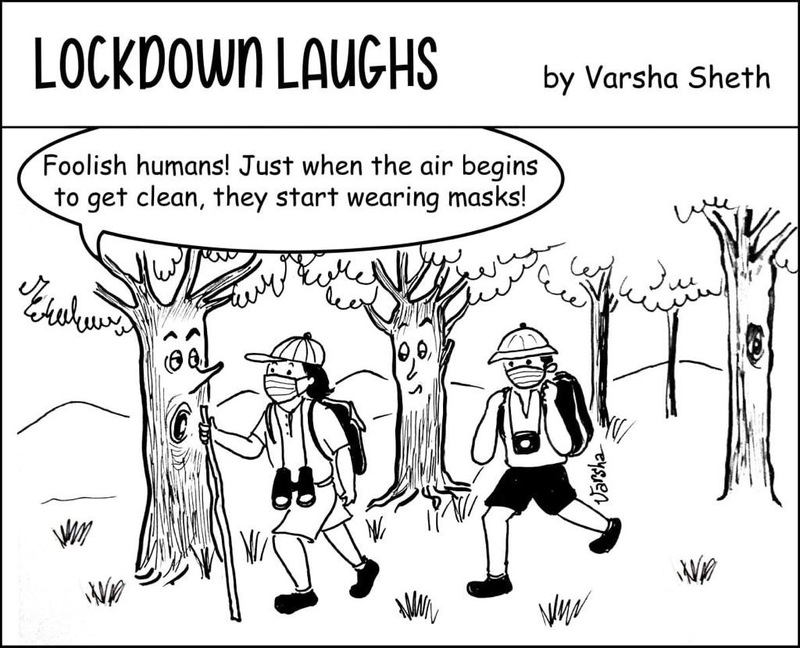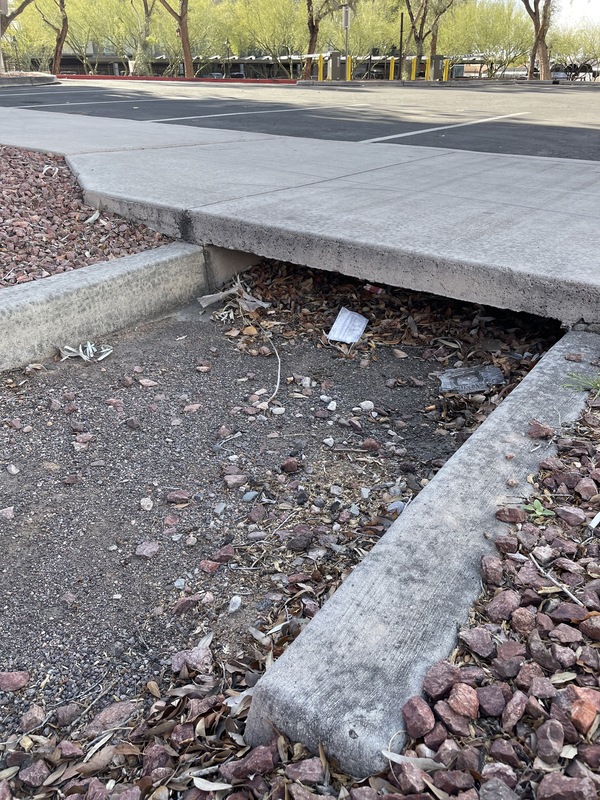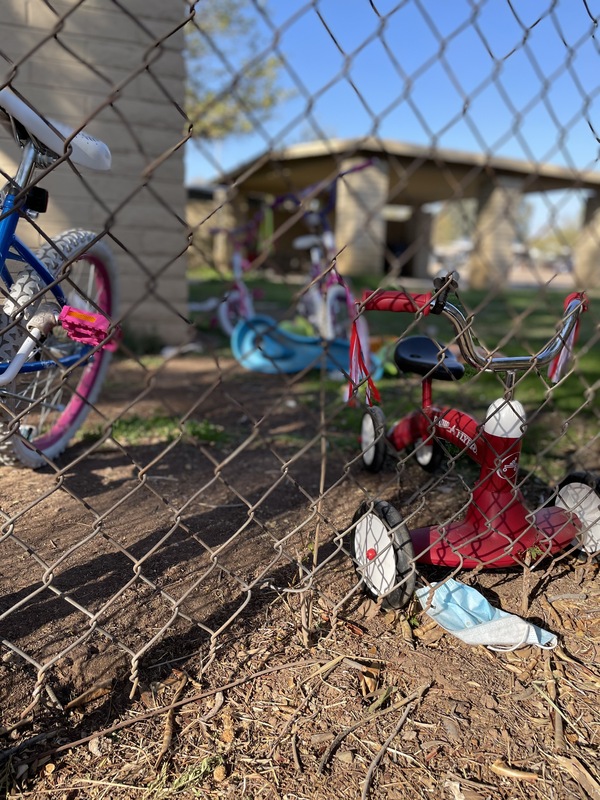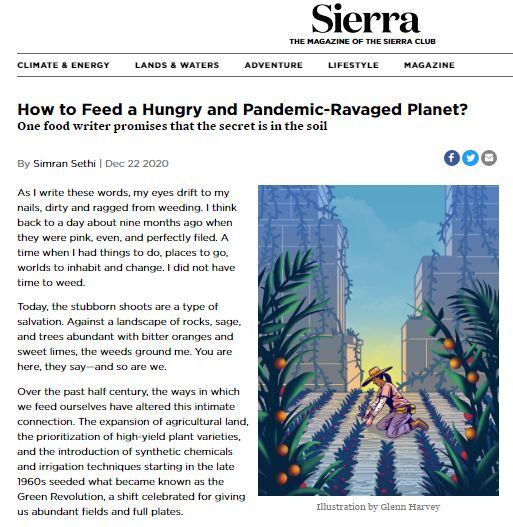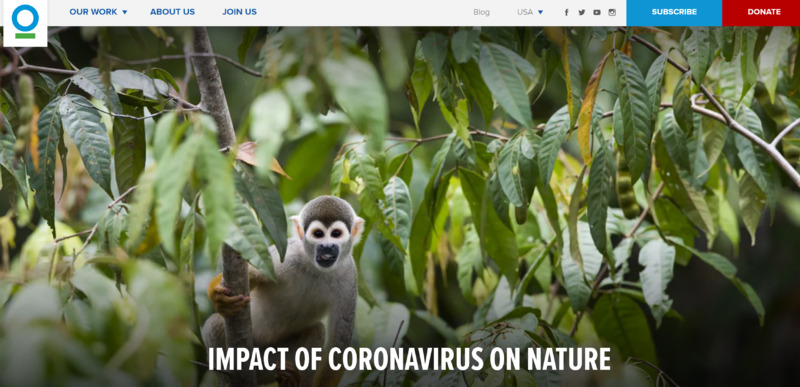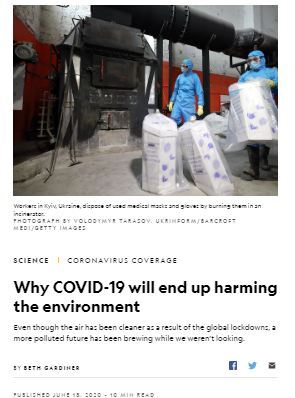The Environment and The Pandemic: The Future
The pandemic has brought our relationship with the environment into sharp relief. How will the pandemic change our relationship to the environment going forward? Will we have a greater appreciation of nature and work to protect it? Will we return to the lessons of our ancestors who had a stronger tie with the land? Have we learned how interconnected we are to nature?
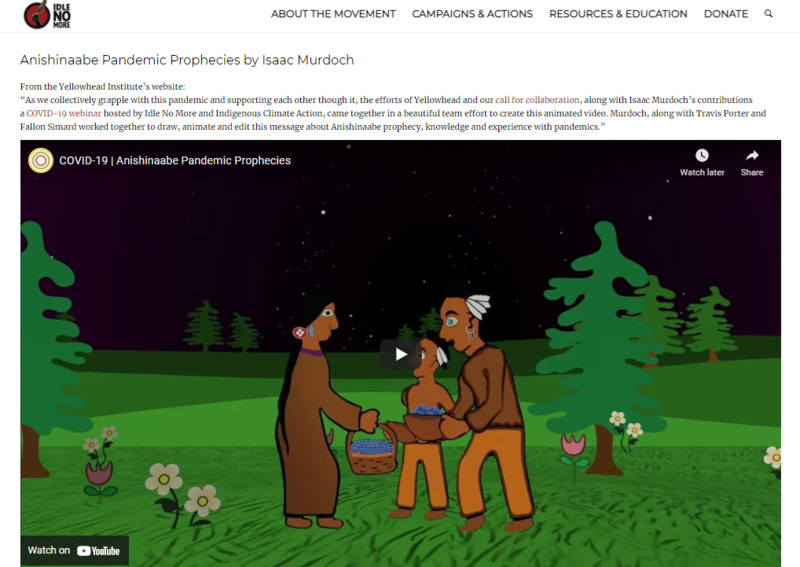
Anishinaabe Pandemic Prophecies by Isaac Murdoch
"The elders are constantly reminding us to go back to the land because it's the biggest and most powerful healthcare system we have."
Pollution: While pollution has declined by some measures during this time, by other measures it has increased, with devastating and continuing effects on the environment and wildlife.

Masks save human, affect animals
"The idea that the animal was the culprit of the pandemic helped to mark our superiority over other species, once more. We never thought about our relationship with the animal, the lack of harmony between different species, our footprint in nature, etc."

Environmental effects of COVID-19 pandemic and potential strategies of sustainability
There were both positive and negative effects of the COVID-19 pandemic on the environment and climate. This article proposes possible strategies for global environmental sustainability going forward.
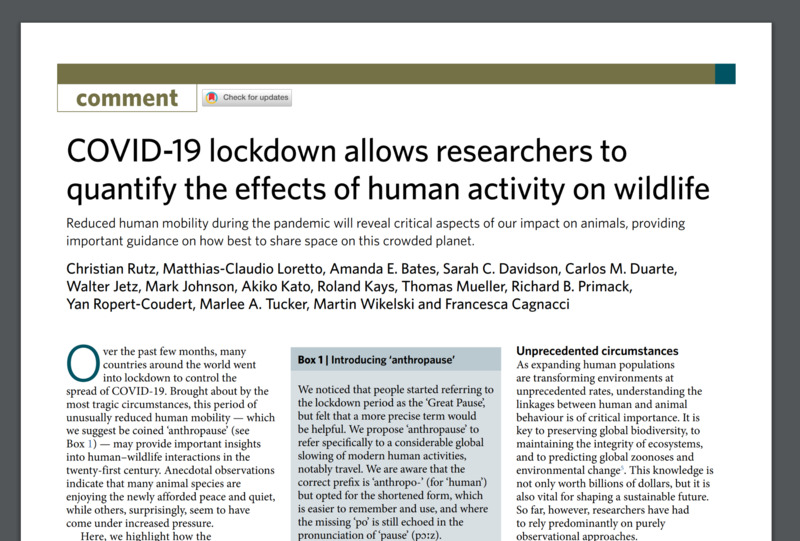
Human effects on wildlife in a pandemic
COVID-19 "has allowed researchers to figure out more on how humans have an effect on wildlife."
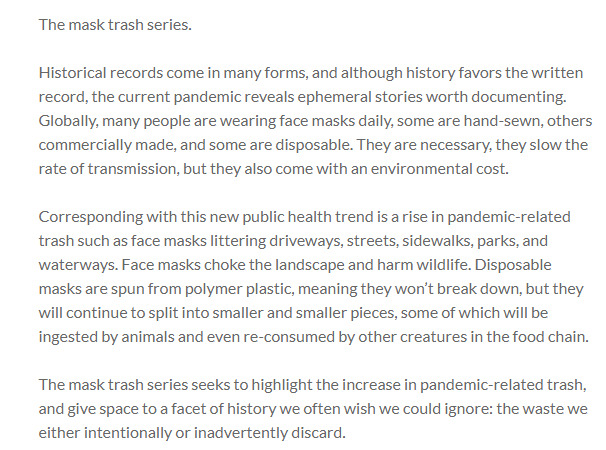
The mask trash series
"The mask trash series seeks to highlight the increase in pandemic-related trash, and give space to a facet of history we often wish we could ignore: the waste we either intentionally or inadvertently discard."
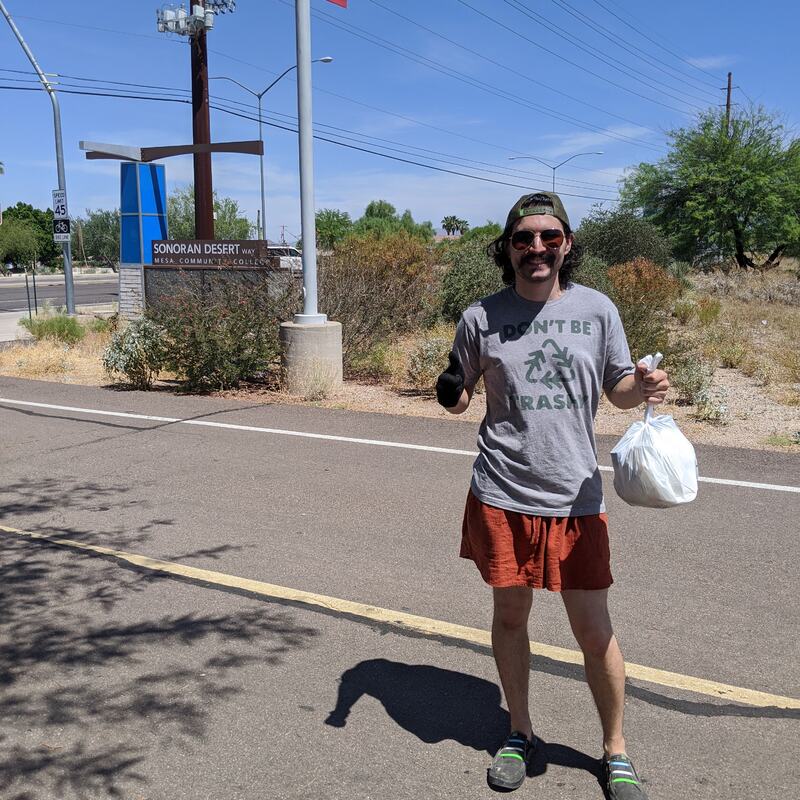
Cleaning up during quarantine
"We depend heavily on the earth, however, we sometimes forget to take care of our planet.”
Gardening and Growing Food: Gardening and growing food activites have blossomed during the pandemic. Will this trend towards connecting on a regular basis with nature and being self-sufficient for foodstuffs be a positive legacy of the pandemic times? Will sharing food from our garden with our neighbors strengthen our community ties?

